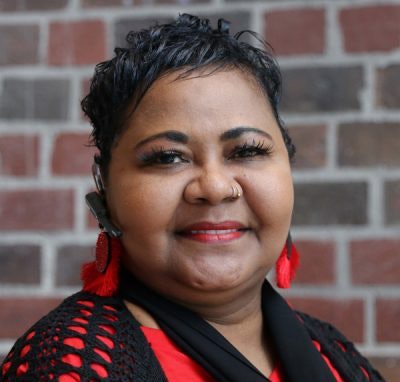Like all families, Black caregivers send their children to school not only to learn, but to be cared for by educators. In far too many cases, neither is taking place as revealed by increasing Black-White achievement gaps, over-referrals to high incidence areas of special education, excessive suspensions, under-referrals to gifted education and advanced courses, and excessive policing of Black bodies from head to toe as early as preschool. All of these school-based injustices have a common denominator: mainly White educators who harbor blatant or implicit negative expectations of Black students. The litany of journal articles, data-based reports, and personal stories in social media slam me in the face and pain my heart almost daily. The adultification and dehumanization of our Black children from preschool through high school and on to college is undeniable and sickening.
The field of Social-Emotional Learning (SEL) has a long history and is discussed in a myriad of ways, such as therapy, and counseling and advising, to help students cope with and resist bullying, feelings of alienation and isolation, and manage desires to be popular, and not underachieve. Underlying much of the conjecture and studies is the belief that those who have a positive self-esteem and healthy self-concept fair better in schools and life (e.g., socially, behaviorally, and academically) and society (e.g., career, salary) than those who do not.
I hold degrees in counseling and educational psychology. Both were chosen based on my intrigue with how social-emotional interests and needs can undercut or undermine the best education and family support—contributing to underachievement, regardless of high expectations from educators and families, high intelligence test scores, and labels for advanced students (e.g., gifted, high potential, high performing).
The ‘educating the whole child’ mantra floats around many districts and is common in reports such as this one by The Learning Policy Institute. I 100% agree with the philosophy of holistic development but have found that culture is seldom central and fundamental to this body of work. Given that most educators and mental health professionals are White and too few have extensive formal preparation in equity, diversity, and inclusion, I am not surprised by the void, but I am disappointed and alarmed. I am concerned for Black students who need SEL guidance.
 Dr. Donna Y. Ford
Dr. Donna Y. FordEducational professionals ill-prepared to work in culturally relevant ways with students of color in their capacity as mental health professionals (e.g., counselors, social workers, psychologists), and teachers, administrators, and policy makers can contribute to and even exacerbate SEL issues for students of color. Let me begin with racial trauma as a case in point. Racism in social and school settings has increased in the last few years. According to the FBI Hate Crimes report for 2018, schools and colleges rank third at 9.2%. Race and ethnicity are consistently the number one source of hate crimes, hovering around 60% annually.
When SEL professionals and others intentionally or unintentionally adopt a culture-blind philosophy and framework, people of color are being woefully failed and marginalized. Black students cannot be or become their authentic cultural selves. For example, our bodies are critiqued and policed from head to toe in many areas and professions.
Let me recap with this short list. Racism in schools is undeniable and traumatizes Black students who are:
- expected to learn and persist in traumatizing, hostile, culturally assaultive learning environments on the one hand or culture-blind school settings on the other hand;
- bullied by their teachers and other educators for being Black;
- suspended more than all other students, and the kick out rate starts in preschool based primarily on teachers’ racism-based subjective views; be mindful that ‘suspend’ means to stop; learning is denied;
- over-referred for and misidentified for special education in the areas of emotional and behavior disorders, intellectual disadvantages, ADHD, developmental delay, and learning disabilities;
- under-referred for and gravely absent in gifted education, Advanced Placement, and other courses for ‘advanced’ learners;
- accused of cheating when they do well on assignments and/or outperform white classmates;
- under-referred for college guidance.
Years ago, I saw a ‘cartoon’ of a Black boy with a target on his chest. #tears and apropos. Then I saw this real-life example where a teacher painted a bullet on this 7-year-young (not old) Black boy’s forehead and saw nothing wrong about it. #RacialTrauma. Our Black students are afraid; our students are angry, and rightfully so. As Black families, we are afraid.
Racial trauma is prevalent but students of color cannot be helped with SEL prevention and intervention methods that in any way ignore and discount how both culture-blindness and cultural assaults dehumanize people of color; these illustrate how both are antithetical to everything that SEL stands for in principal and practice. When the cultural traditions of people of color are policed in this and other ways, there is no such thing as focusing on the whole child of color. #period.
I implore SEL theorists and professionals in all capacities and settings to:
- understand that there is no way to work effectively with the ‘whole child’ of color when culture is demonized, ignored, discounted, and/or trivialized;
- cease and desist proposing and adopting simplistic solutions to complex issues and problems;
- hire more SEL professionals of color in SEL and related careers;
- ensure that high-quality multicultural content exists in the curriculum, both P-12 and higher education, and SEL strategies and sessions. Sample resources include:
- study and use William Cross’ Nigresence Theory – the psychology of becoming Black; it is an essential theory to include in SEL work. Acquire a solid grasp on Pre-Encounter Identity and three sub-identities (i.e., assimilation or miseducation or self-hatred); Encounter Identity and its two sub-identities (i.e., intense Black involvement or anti-whiteness); and Internalized Identity that has three sub-identities (i.e., nationalist, biculturalist, and internationalist); learn about and integrate other racial and ethnic identity models;
- be professionals who proactively create and/or participate in ongoing professional development to become culturally competent; and
- proactively request that higher education professionals offer courses and programs saturated with equity, diversity, and inclusion.
No school bell can turn on and off culture during school hours. We are cultural beings 24-7-12-365. The same with racism. If one is racist in belief and behavior outside of school, one is racist inside of school. It would indeed be wonderful if educators themselves received SEL help for themselves in order to stop wreaking racialized havoc on Black students. #StopRacismInSchools Or leave the profession.
Dr. Donna Y. Ford is a Distinguished Professor of Education and Human Ecology and Kirwan Institute Faculty Affiliate at The Ohio State University’s College of Education and Human Ecology.
















